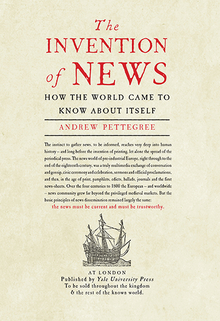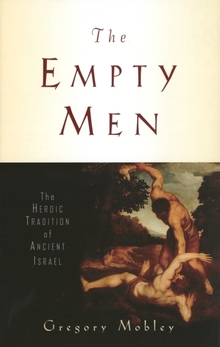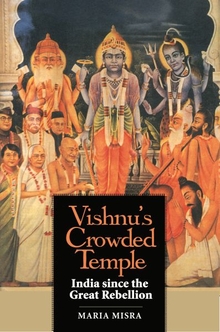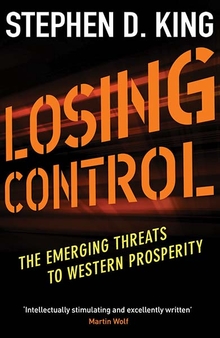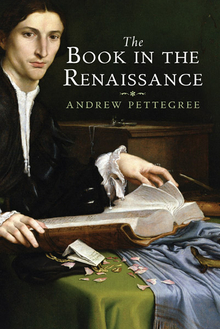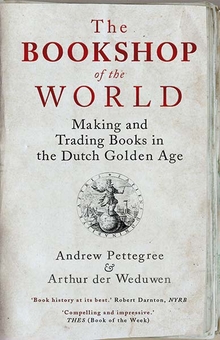The Invention of News
WARNING
You are viewing an older version of the Yalebooks website. Please visit out new website with more updated information and a better user experience: https://www.yalebooks.com
How the World Came to Know About Itself
Andrew Pettegree
Long before the invention of printing, let alone the availability of a daily newspaper, people desired to be informed. In the pre-industrial era news was gathered and shared through conversation and gossip, civic ceremony, celebration, sermons, and proclamations. The age of print brought pamphlets, edicts, ballads, journals, and the first news-sheets, expanding the news community from local to worldwide. This groundbreaking book tracks the history of news in ten countries over the course of four centuries. It evaluates the unexpected variety of ways in which information was transmitted in the premodern world as well as the impact of expanding news media on contemporary events and the lives of an ever-more-informed public.
Andrew Pettegree investigates who controlled the news and who reported it; the use of news as a tool of political protest and religious reform; issues of privacy and titillation; the persistent need for news to be current and journalists trustworthy; and people’s changed sense of themselves as they experienced newly opened windows on the world. By the close of the eighteenth century, Pettegree concludes, transmission of news had become so efficient and widespread that European citizens—now aware of wars, revolutions, crime, disasters, scandals, and other events—were poised to emerge as actors in the great events unfolding around them.
‘Andrew Pettegree’s The Invention of News is a fascinating book - beautifully written, admirably organized, with a mass of information about even the most recondite means of collecting and transmitting news before 1800.’—Alastair Hamilton, TLS
“Newspaper themselves were once new media. Yet as Andrew Pettegree explains in an elegantly written and beautifully constructed account, it took several centuries before they became the dominant medium for news.”—Peter Wilby, New Statesman
“Newspaper themselves were once new media. Yet as Andrew Pettegree explains in an elegantly written and beautifully constructed account, it took several centuries before they became the dominant medium for news.”—Peter Wilby, New Statesman
‘The Invention of News is a valuable addition to our knowledge of European cultural history. It is also an ambitious book [and] a good history. It illuminates and entertains. . .’—Adrian Tinniswood, Literary Review
‘The Invention of News is a valuable addition to our knowledge of European cultural history. It is also an ambitious book [and] a good history. It illuminates and entertains. . .’—Adrian Tinniswood, Literary Review
Publication Date: March 10, 2015
64 b/w illus.

